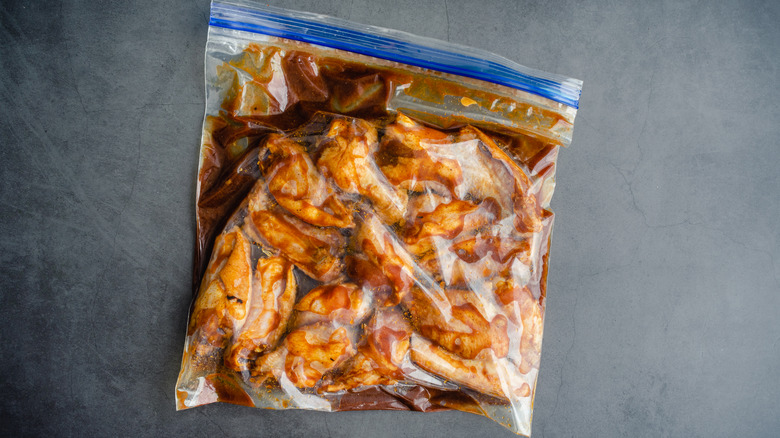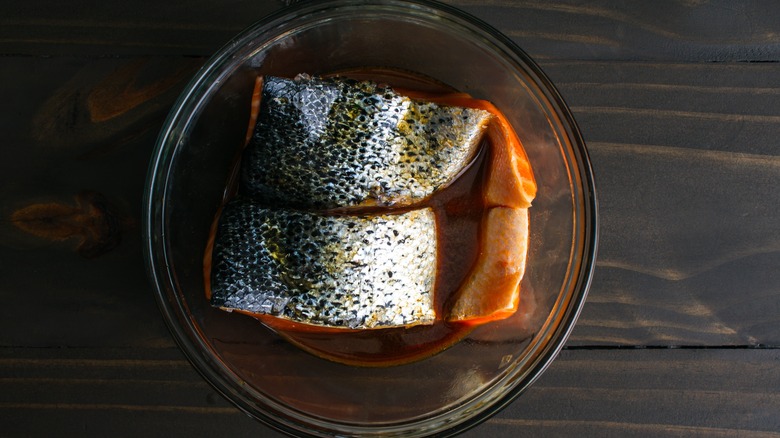The Temperature Mistake You're Making When Marinating Meat
When prepping a juicy steak or a rack of ribs, you probably follow the classic advice to marinate your meat in the fridge for a few hours, or even overnight. But you might want to reconsider the "keep it cold" mantra.
"When marinating, start your steak at just below room temperature," K.C. Gulbro, owner of both FoxFire Restaurant and Copper Fox event venue, and Chef Ambassador for Certified Angus Beef®, told Food Republic. "The meat is relaxed and will absorb more of the marinade. Throwing a cold steak into a cold marinade will be like jumping into a cold bathtub, the meat will tense up, and will not absorb the flavor."
While Gulbro recommends that you stick to the fridge for marinades of a few hours or longer, he says that quick marinades can and should be done at room temperature. This technique performs double duty, as you want your meat to come to room temperature before cooking anyway, which will allow it to cook more evenly, better retain moisture, and avoid shrinkage. Just give your meat about 20 minutes to warm up, then add it to your marinade. If you're using refrigerated condiments for your marinade, be sure to let them come to room temperature as well. Alternatively, you could temper your meat (slowly warm it in the oven at a low temp), or sous vide it in the marinade.
Safety concerns when marinating at room temperature
Now, you might be wondering just how safe it is to marinate your meat at room temp. The reason why most people marinate their meat in the refrigerator is to prevent it from falling into the "danger zone." According to the USDA, food should be kept either below 40 degrees Fahrenheit, or above 140 degrees Fahrenheit, to prevent bacteria growth.
In other words, you want to keep it in the fridge, or on the stove. (For reference, the ideal fridge temperature is around 37 degrees Fahrenheit.) But a brief period of marination out of the fridge likely won't harm you, as long as you don't leave your meat at room temperature for more than two hours. Just make sure your marinade is kept out of particularly warm temperatures for best results.
If you're still concerned about how to marinate your raw chicken without jeopardizing food safety, try sealing it in a zip-top bag to prevent exposure to the elements and potentially harmful bacteria. Then crack out your best basic marinade recipe, and allow those flavors to work their magic.


